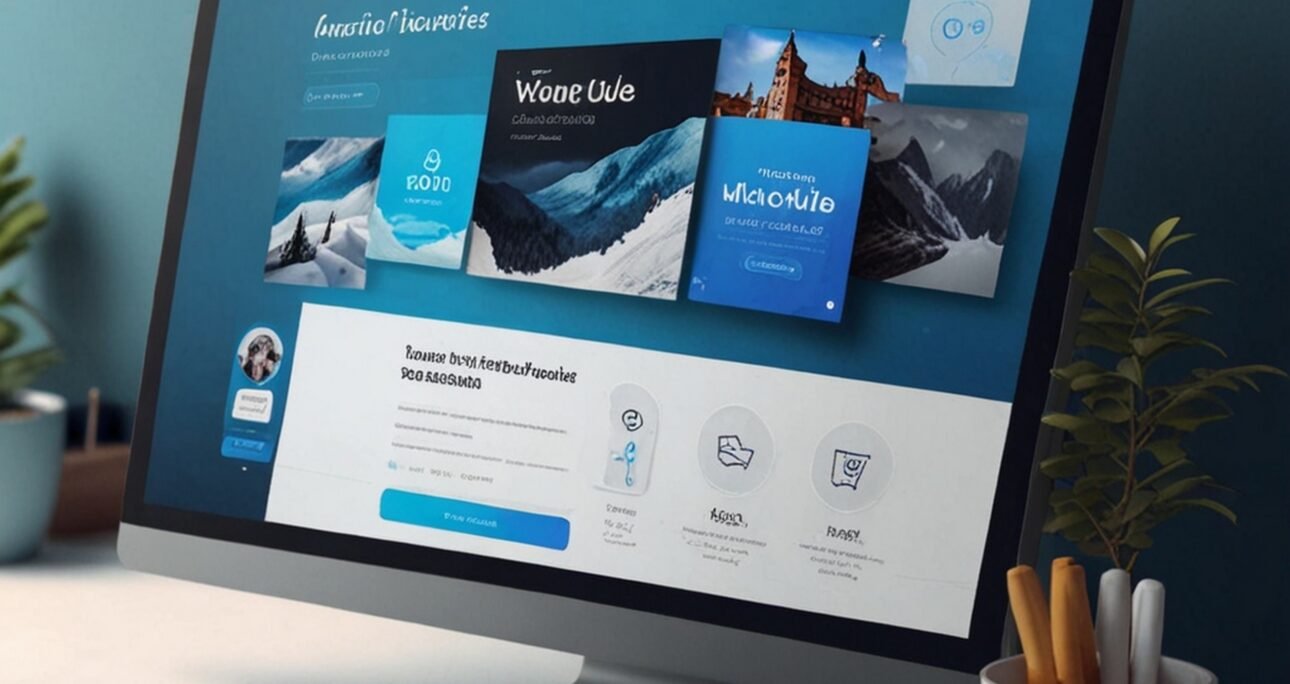Having a website for your business is crucial in today’s digital age. Here’s why it’s important:
1. Online Presence and Visibility
- 24/7 Accessibility: A website allows your business to be accessible to potential customers around the clock, providing information and services even when your physical location is closed.
- Global Reach: It enables you to reach a broader audience beyond your local area, potentially attracting customers from around the world.
2. Credibility and Professionalism
- Builds Trust: A well-designed website enhances your business’s credibility and can help build trust with potential customers. It demonstrates that your business is legitimate and serious.
- Professional Image: A professional-looking website reflects positively on your business, showcasing your brand and services effectively.
3. Marketing and Branding
- Digital Marketing: A website is a central hub for your digital marketing efforts, including SEO (search engine optimization), content marketing, and pay-per-click advertising.
- Brand Identity: Your website provides a platform to communicate your brand’s message, values, and unique selling points. It helps establish and reinforce your brand identity.
4. Customer Engagement and Interaction
- Contact Information: Your website provides an easy way for customers to find your contact information, including phone numbers, email addresses, and physical addresses.
- Customer Support: It can include features like live chat, FAQs, and support forms, making it easier for customers to get assistance.
5. Lead Generation and Sales
- Lead Capture: Websites can include forms and calls-to-action (CTAs) to capture leads, gather contact information, and nurture potential customers.
- E-Commerce: If you sell products or services, a website enables you to set up an online store, facilitating transactions and expanding your sales channels.
6. Information Sharing
- Content and Updates: You can regularly update your website with new content, such as blog posts, news updates, and product information, keeping your audience informed and engaged.
- Resource Hub: Your website can serve as a central repository for valuable resources, such as guides, white papers, and case studies.
7. Competitive Advantage
- Stay Competitive: In a competitive market, having a website ensures you’re not left behind. Many customers expect businesses to have an online presence, and not having one can put you at a disadvantage.
- Showcase Differentiators: A website allows you to highlight what sets your business apart from competitors, showcasing your unique selling points and strengths.
8. Analytics and Insights
- Track Performance: Websites provide data and analytics tools to track visitor behavior, measure the effectiveness of marketing efforts, and understand customer preferences.
- Informed Decisions: This data helps you make informed business decisions, optimize your strategies, and improve customer experience.
9. Cost-Effective Marketing
- Affordable Advertising: Compared to traditional advertising methods, maintaining a website is relatively cost-effective. It offers long-term benefits and can reach a wide audience without ongoing high costs.
- Content Promotion: You can promote your content and offers directly through your website, reaching your target audience efficiently.
10. Adaptability and Growth
- Scalability: A website can grow with your business, adapting to changes in your products, services, or market needs.
- Future-Proofing: As technology evolves, a website allows you to incorporate new features and technologies to stay relevant and competitive.
Conclusion
In summary, a website is a fundamental tool for establishing and growing your business. It enhances your online presence, builds credibility, supports marketing and sales efforts, and facilitates customer engagement. With its wide range of benefits, having a website is essential for competing effectively in today’s digital landscape.


